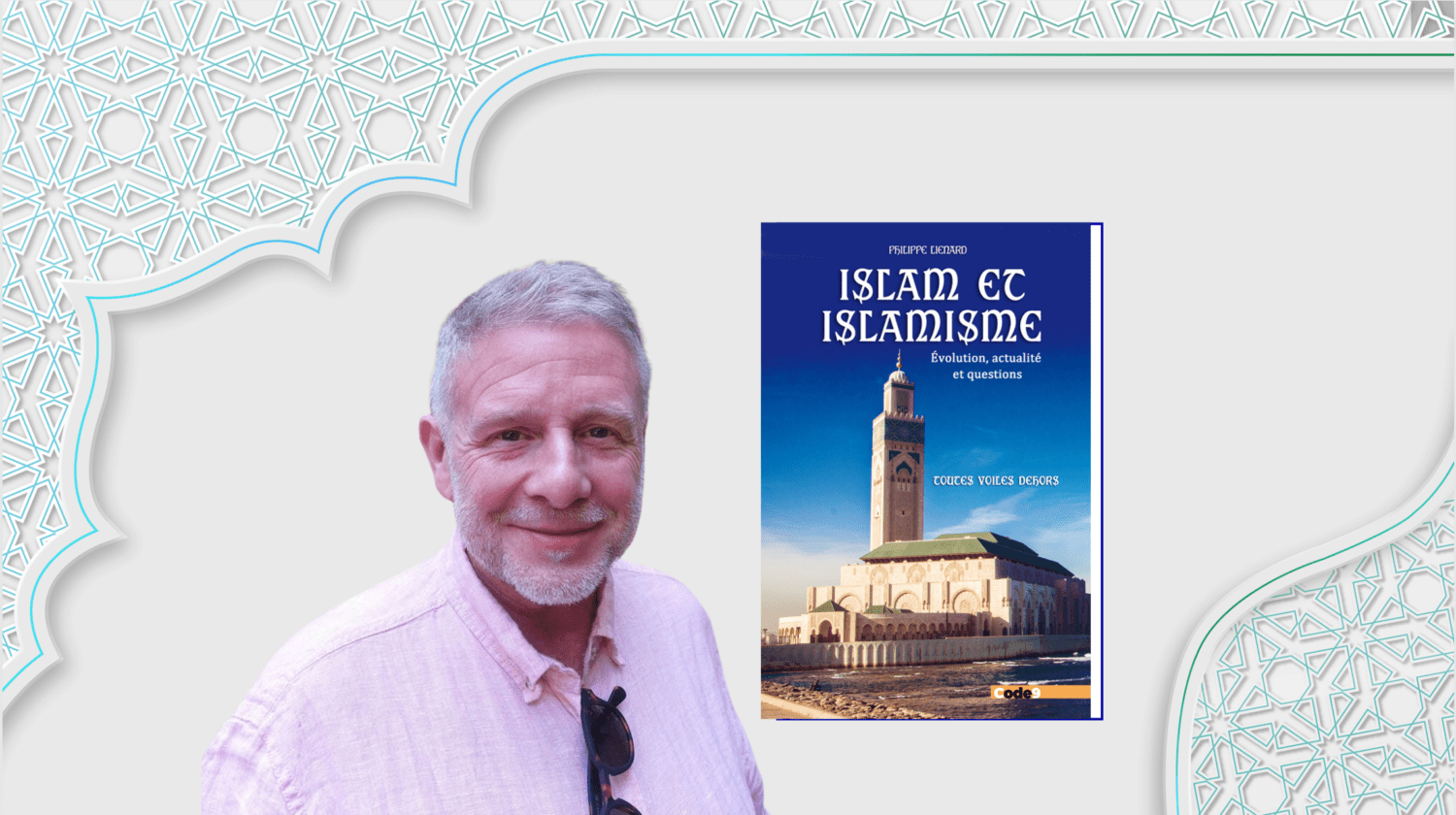A work published by Code9, Paris-Brussels, in September 2023, from the pen of Philippe Liénard, honorary lawyer, former magistrate, history enthusiast and author of more than twenty books relating to currents of thought.
The subject is intended to be a work of historical research which highlights the differences between legend, prejudices and reality, insofar as historians, anthropologists and philologists have been able to ensure this highlighting beyond theology. It has two parts, the one which takes up the history of Islam, and the second, which underlines what Islamisms are and identifies them, warns and aims to awaken vigilance or even more, because living freely together has a price, that of acceptance of the non-liberticidal thoughts and beliefs of others, without anyone wanting to impose their own on others. Everyone remains free to adhere, or not, to a religion, but their right does not include the right to force others to embrace their views, or those of socio-political-religious strategists, who manipulate humans through their weaknesses or their youth. , to create a new world order that will send liberal democratic values overboard.
Philippe Liénard does not hesitate to use, in the subtitle, a slightly mischievous and provocative with “All sails out”a maritime metaphor meaning “at full speed” referring to the situation where all of a ship’s sails are unfurled to go as fast as possible. However, the term “veil” also refers to the different garments worn by some Muslim women to cover their heads or bodies, based on varying interpretations of Quranic injunctions and timeworn traditions. The Koran does not require it, except for the private parts.
Islam is both the religion of Muslims, and, at the same time, encompasses the Muslim world, that of Muslim peoples, designating as a whole, “a set of durable and identifiable material, cultural and social traits” and, at the same time, -beyond religion proper with its faith and worship, a political power and a general movement of civilization. In short, it is the Umma imagined in the time of Mohammed. This Community has no imposed nationality. It is open to anyone who wants it, provided they are converted.
There is reason not to not confuse Islam and Islamism, a chapter of the book is also entitled “Brief History of Islam and Islamism”, two terms which refer to distinct concepts, although they are sometimes used interchangeably or misunderstood in public discourse or any amalgamation through ignorance, or anger of certain analyses, for the same reason, or by the bias of retrograde, fundamentalist, literalist currents, whose objective is not living together freely.
Islamism, and more accurately Islamisms, is a term describing a political ideology which seeks to establish a form of government or system based on a strict interpretation of Islamic law, Sharia law., an assembly of rules from various backgrounds, not to be confused with faith or religious practice in itself. This hegemonic radical political movement was invested, in part, in supporting decolonization, as was the case with the Muslim Brotherhood in Egypt from 1928, a secret society, which opposed modernity, emancipation in equality for all outside of a text whose retrograde and “uncivilizing” analysis for the West appears more and more in contradiction with its values. It already took the form of a flashback well before this period, but in the light of a past about which little is known, that of the first so-called pious companions of Mohammed. Let’s think about Salafism which will perform via Wahhabism. Objective: establishment of a global caliphate. And more recently, let us think of Madkhalism, which has the fairly simple doctrine of doing everything to satisfy and obey the leaders of the Gulf. We know little about the underside of these currents, which have been described a thousand times.
Islam and Islamism sometimes seem vague. It is not a monolith. Islam has trends, the vast majority being Sunni and having notably given rise to Salafism and Madkhalism. The minority is Shiite and makes noise. In all cases Islamism fuels terrorism in various facets, a retrograde vision where one must obey Allah because Allah wants it. A small minority, Babism, advocates equality between men and women. Within Islam it is necessary to distinguish between different periods and the history of an ancestral patriarchy, between religion and traditions, between belief and faith, and a fanaticism which does not include a message of love.
The author also deals with the conditions of women in Muslim societies, the question of “domestic” animals, not hesitating to provide a social and societal overview (justice, Islamic police, Muslim law, blasphemy, caricature ).
This book is described as enlightening by the press. But who does it enlighten? Not those convinced that they are right because they are right because the imam said so or because a wise exegete interpreted in his own way a hadith with hateful content.
The question remains the same for some: should we modernize Islam or Islamize modernity? Intellectuals plead for an Islam of Enlightenment, but Islamism extinguishes them, apart from the fact that this concept is specific to the history of the West, despite the so-called Golden Age of Islam. Its intellectuals have for part been muzzled.
Philippe Liénard intends to work for the progress of humanity in the freedom of beliefs, faith and adherence to this or that god, but not to the liberticidal proselytism which proliferates via Islamisms which reassure no one, not even the troops who are loyal to him. Far from an Islamophobic study, this book is a tool of fraternity intended to avoid a certain spirit which could be Islamophobic. However, we must dare to say things, look in the rearview mirror of history, and speak the truth, even if there are truths that disturb and fuel fatwas.














